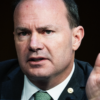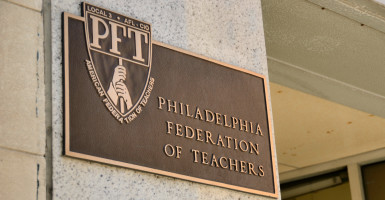PHILADELPHIA—A faction within the city’s largest teachers union is planning to challenge incumbent officers in next year’s elections because the faction’s members feel that their interests are not being adequately represented.
The Caucus of Working Educators, a group of about 300 school nurses, counselors, and support staff within the 11,000-member Philadelphia Federation of Teachers, is seeking a change in union leadership that has remained relatively intact since 1983. PFT President Jerry Jordan has been in office since 2007 and has been a member of the collective bargaining team since 1992.
The Caucus of Working Educators was founded in March 2014 and has called for more engagement, the development of new union leaders, and deeper relationships with the community and parents. Caucus members have started a listening tour to get an idea of the most important issues facing the union. Elections are scheduled for early next year.
Similar revolts have happened within teachers unions in Chicago, Detroit, Los Angeles, Milwaukee and San Francisco when progressive splinter groups were frustrated with their stale leadership.
Neither the PFT nor the Caucus of Working Educators responded to requests for comment, but a pair of lawmakers in Harrisburg are planning to address a similar issue when the three-month state budget impasse is solved. Rep. Tedd Nesbit, R-Mercer County, and Sen. Richard Alloway, R-York, will introduce a new bill requiring public labor unions to hold mandatory officer elections at least once per contract period.
“I don’t envision it as an anti-union legislation,” Nesbit told Watchdog. “I’m sure some might think that, but my thought was that they should be required to have a vote for the union representative at least once every contract. That will make sure they give new people hired adequate representation.
Nesbit and Alloway said more than 99 percent of school teachers have not voted for their current union acting as their exclusive representative in the collective bargaining process, and in the past 30 years, less than 2 percent of school districts have held certification elections.
The PFT holds elections every four years and has been working under a contract that expired in 2012.
According to the state Public Employee Relations Act, which certifies labor unions as collective bargaining entities, there is no obligation to hold regular elections. Instead, officer elections are optional at the expiration of workplace contracts.
“I think it would be important that they have up-to-date union representation so that they know they have to answer to their rank and file,” Nesbit said. “I don’t think unions are adequately representing all of the interests of the teachers, specifically.”
This theme continues to hang over labor unions, especially teachers unions. In the past year, the American Federation of Teachers irked its rank and file when it endorsed Hillary Clinton for president without polling members. Unions have also come under fire for political spending that is not always in line with all of their members’ personal beliefs, an issue that’s powered several lawsuits, including one in which a longtime teacher is challenging the charities her dues to the Pennsylvania State Education Association are supporting.
The U.S. Supreme Court is also deliberating the case of a group of teachers fighting against the California Teachers Association this fall and the union’s “agency fees” that all teachers, regardless of their affiliation, are required to pay CTA, even if they do not want to be members.
Unions across the country have been found time and again to operate with a top-down strategy that puts their leadership and political interests before the their members’ needs and wants. Aided by existing laws that do not compel regular elections, union leaders are afforded the freedom to maintain office without challenge for years.
This doesn’t work in government, and for some disgruntled members, it does not appear to be working for unions, either.
“It’s the same with us,” Nesbit said. “We have to run for election every two years, and that helps you represent the people. For union representation, it’s important that they actually have to talk to the rank and file.”
Originally published in Watchdog.org.



























